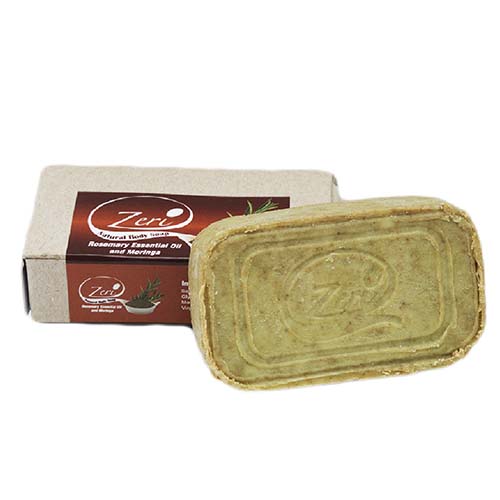Introduction: Why Natural Soap Deserves a Spot in Your Skincare Routine
If you’ve ever stood in the skincare aisle, overwhelmed by the endless rows of brightly packaged soaps, body washes, and cleansers, you’re not alone. Many commercial soaps may look appealing, but they’re often packed with harsh chemicals, synthetic fragrances, and detergents that strip the skin of its natural oils. This can be especially challenging if you’re dealing with acne, psoriasis, dermatitis or sensitive skin. That’s where the benefits of natural soap come in. Made with plant-based oils like tea tree, neem, and moringa, natural soaps are designed to cleanse without compromise. They nurture your skin, respect its delicate barrier, and cater to different skin types—from oily to dry, and everything in between.

In this post, we’ll explore why natural soap is a game-changer for healthy skin, backed by insights from dermatology and centuries of traditional wisdom.
1. What Makes Natural Soap Different?
Unlike mass-produced soaps, natural soap is often crafted through traditional cold-press or hot-process methods. This means:
- Glycerin is retained – a natural humectant that draws moisture into the skin.
- Oils and botanicals remain active – delivering therapeutic properties.
- No harsh sulfates or detergents – which can dry or irritate the skin barrier.
Natural Soap vs. Commercial Soap
| Feature | Natural Soap | Commercial Soap |
|---|---|---|
| Ingredients | Plant oils (tea tree, neem, moringa, shea butter, olive oil) | Synthetic detergents, preservatives |
| Moisture | Retains glycerin | Often stripped out |
| Skin Benefits | Anti-inflammatory, soothing, nourishing | May cause dryness, irritation |
| Suitable For | All skin types including sensitive, psoriasis, acne, dermatitis | Limited; often harsh on sensitive skin |
With natural soap, you’re not just washing away dirt—you’re feeding your skin.
2. Dermatology Insights: Why Natural Soap Matters
Dermatologists agree that maintaining the skin barrier is key to preventing irritation and flare-ups. Conditions like acne, psoriasis, and dermatitis are often triggered or worsened when the skin barrier is compromised.
Natural soaps, enriched with oils and botanicals, support the skin barrier rather than stripping it. This makes them an excellent option for:
- Acne-prone skin – Tea tree oil’s antibacterial properties help reduce pimples.
- Psoriasis – Neem oil soothes scaling and inflammation.
- Dermatitis – Moringa oil nourishes dry, itchy patches.
- Sensitive skin types – Gentle formulas cleanse without harsh side effects.
By using natural soap, you’re choosing a dermatology-friendly solution that complements, rather than conflicts with, your skin’s natural rhythms.
3. Star Ingredients in Natural Soap and Their Benefits
Let’s dive into some powerhouse ingredients that make natural soap so effective:
Tea Tree Oil
- Antibacterial & antifungal – helps fight acne-causing bacteria.
- Anti-inflammatory – calms redness and swelling.
- Ideal for oily and acne-prone skin types.
Neem Oil
- Rich in antioxidants – protects skin from free radical damage.
- Soothing for psoriasis and dermatitis – reduces itching and flaking.
- Deeply moisturizing, making it perfect for dry and sensitive skin.
Moringa Oil
- Nutrient-rich – contains vitamins A, C, and E.
- Anti-aging benefits – helps maintain youthful, glowing skin tone.
- Lightweight yet moisturizing, ideal for all skin types.
Supporting Oils
- Coconut oil – natural cleanser and moisturizer.
- Olive oil – gentle, soothing for sensitive skin.
- Shea butter – anti-inflammatory and deeply nourishing.
When blended in soap, these oils create a balanced, skin-loving formula.
4. The Benefits of Natural Soap for Different Skin Conditions
Natural Soap for Acne
If you struggle with pimples on the face, natural soap with tea tree oil can be a lifesaver. It unclogs pores, reduces bacteria, and minimizes inflammation—all without harsh chemicals that dry out your skin.
Natural Soap for Psoriasis
Psoriasis flare-ups can be uncomfortable and visible. Natural soaps with neem oil offer soothing relief, reducing itching and scaling. The gentle formula respects sensitive patches, making daily cleansing less of a challenge.
Natural Soap for Dermatitis
From atopic dermatitis to contact dermatitis, irritation and dryness are common. Natural soaps with moringa oil and shea butter provide hydration and protection, easing discomfort and promoting skin healing.
Natural Soap for Sensitive Skin Types
If you’ve ever reacted badly to commercial soaps, natural soap may be your safe haven. Free from synthetic dyes and harsh fragrances, it cleanses without triggering allergies or sensitivities.
5. Environmental and Health Benefits
Choosing natural soap doesn’t just help your skin—it also helps the planet.
- Biodegradable ingredients – eco-friendly for waterways.
- Sustainable oils like moringa and neem support local farmers.
- Minimal packaging – often wrapped in recyclable or compostable paper.
By switching to natural soap, you’re reducing your environmental footprint while supporting sustainable skincare.
6. How to Choose the Best Natural Soap for Your Skin Type
Every skin type is unique, and so is every bar of natural soap. Here’s a quick guide:
- Oily/Acne-Prone Skin → Look for tea tree oil, activated charcoal.
- Dry/Flaky Skin → Shea butter, olive oil, neem oil.
- Sensitive Skin → Fragrance-free, with moringa oil or chamomile.
- Aging Skin → Moringa oil, rosehip oil, vitamin E.
Always check the ingredient list to avoid allergens, and do a patch test if you have sensitive skin or chronic conditions like psoriasis.
7. How to Use Natural Soap for Best Results
- Lather gently – natural soap may not foam as much as commercial soap, but it cleans just as effectively.
- Use lukewarm water – hot water can strip oils and worsen dryness.
- Moisturize after cleansing – lock in hydration with a natural oil or lotion.
- Store properly – keep your bar dry between uses to make it last longer.
8. Real Stories: Why People Are Switching to Natural Soap
Many people have noticed improvements in their skin after switching. For example:
- A woman with sensitive skin shared that neem soap stopped her persistent redness.
- A man with psoriasis found that natural soap reduced his flare-ups compared to commercial cleansers.
- Teens struggling with acne saw fewer pimples when using tea tree oil soap.
These personal stories highlight the real, visible difference natural soap can make.
9. Useful Resources
- Learn more about different skin types in our full guide.
- Explore our natural soap collection for acne, psoriasis, and sensitive skin.
- National Psoriasis Foundation – insights on living with psoriasis.
- American Academy of Dermatology – dermatology-approved skin care advice.
10. Conclusion: A Small Switch with Big Benefits
The benefits of natural soap go far beyond cleansing. Whether you’re dealing with acne, psoriasis, dermatitis, or sensitive skin types, natural soap infused with tea tree, neem, and moringa oils offers a gentle, nourishing, and dermatology-friendly solution.
By making this simple switch, you’re not only supporting your skin health but also contributing to a healthier planet. So next time you reach for a bar of soap, consider choosing one that’s as natural as your skin deserves.
